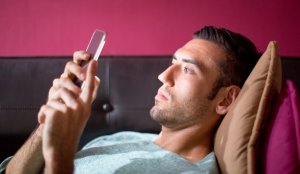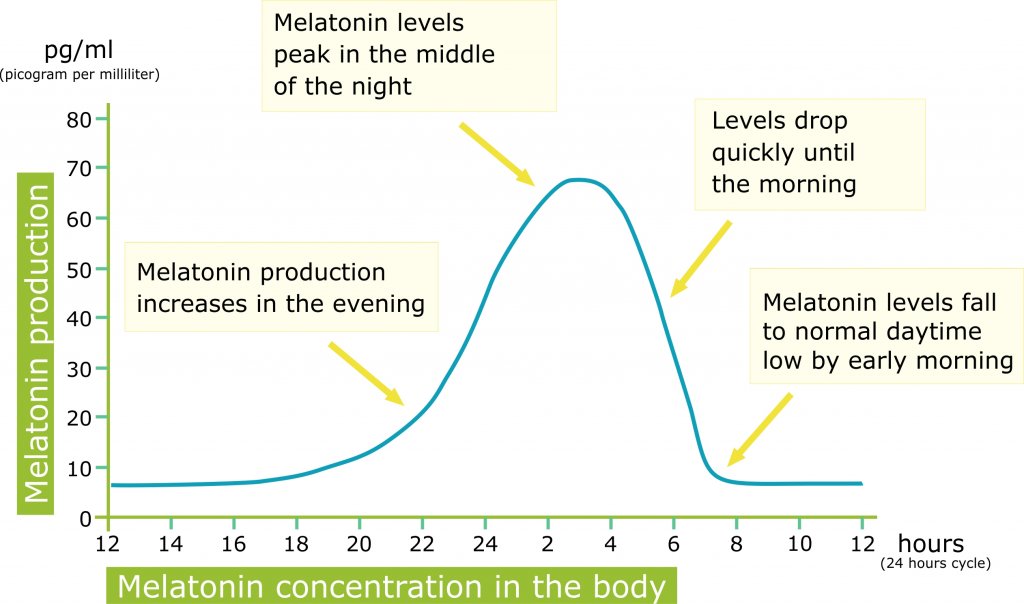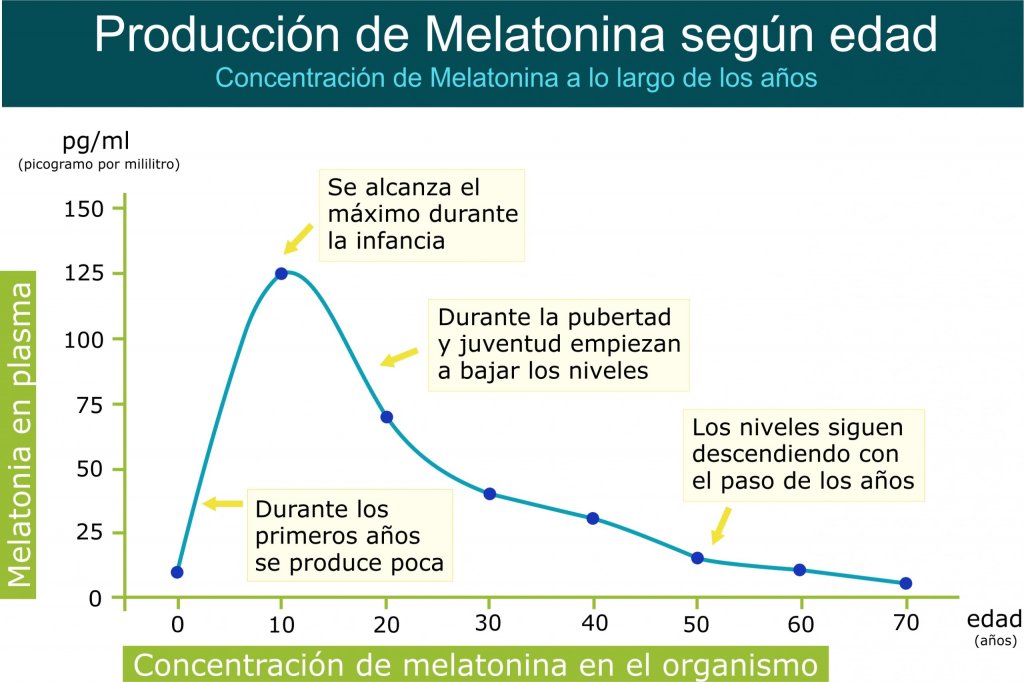Do you have trouble falling asleep at night? Are you considering using melatonin supplements to improve your sleep? Melatonin for sleep is one of the most widely used supplements for sleep, but it won’t fix all sleeping problems. At Recharge.Energy, we’re dedicated to offering the most accurate information and advice to help you improve your sleep. That’s why, in this guide, we discuss everything you need to know about melatonin for sleep before buying.
You’ll learn about what melatonin is, how it can help you, and the specific sleeping problems it’s used for. We’ll also cover some frequently asked questions regarding melatonin. If you’re thinking about using melatonin for sleep, consider this your complete guide.
The information on Recharge.Energy.com is not meant to replace professional advice or meant to be used to prevent, diagnose, or treat any disease or illness. Always consult your doctor before trying any products you see on this site.
What is melatonin?
Melatonin (also known as the sleep hormone) is a hormone produced in the pineal gland of our brain that causes sleepiness and helps us synchronize our 24-hour sleep-wake cycle known as our circadian rhythm.
In accordance with our natural sleep-wake cycles, the pineal gland does not produce melatonin during the day or when the eyes detect a certain amount of light. When the sun begins to set, however, the pineal gland begins to produce melatonin and doesn’t stop until the sun begins to rise again.
Evolution of melatonin levels during a 24-hour cycle
As our levels of melatonin increase, our body temperature and blood pressure start to drop. This reduces our energy and makes us feel sleepy. Likewise, melatonin calms brain activity and reduces dopamine levels in the brains – two additional functions of melatonin that contribute to our overall sleepiness [1]Functional MT1 and MT2 melatonin receptors in mammals [2]The roles of dopamine and serotonin, and of their receptors, in regulating sleep and waking.
Melatonin production is essential to be able to fall asleep quickly and to stay asleep throughout the night. If you have a hard time falling asleep and/or you find yourself waking up several times during the night, your body may be producing too little melatonin.
Melatonin can help you improve your sleep but to be really effective you must combine it with proper sleep hygiene.
Visit our guide of Tips to sleep better
Causes of melatonin deficiency
Melatonin is one of the most scientifically supported supplements for improving sleep, but melatonin isn’t for everyone. Melatonin only helps if your body isn’t producing enough melatonin or doesn’t produce melatonin at the right times.
Here are some causes of melatonin deficiency:
Too much light at night (especially blue light)

Light is the main regulating element of our circadian rhythms and melatonin production. Simply put, light inhibits the production of melatonin. [3]Effects of light on human circadian rhythms, sleep and mood Furthermore, blue light (the light emitted from screens) is especially harmful to our circadian rhythms and melatonin production[4]Systematic review of light exposure impact on human circadian rhythm.
One of the best ways to prevent insomnia caused by too much blue light at night is to wear anti blue light glasses. These glasses can block blue light and help natural melatonin production return to normal. Another way to solve the problem, however, is to try melatonin for sleep.
Jet lag

When we travel to a new time zone, it often takes a couple of days to adjust to our new sleep schedules. All of a sudden, we have to get to sleep at what feels like a much earlier or much later time.
That’s because, even though we’re in a new time zone, our bodies are still producing melatonin as if we’re in our old time zone. It takes a few days for our bodies to adjust to our new sleep schedule and produce melatonin at the right times.
Fortunately, melatonin supplementation is a very effective solution for jet lag[5]Melatonin for the Prevention and Treatment of Jet Lag. Supplementing with melatonin is one of the best ways to feel sleepy at the right time and speed up this adjustment process. In fact, it’s the remedy most used by pilots and flight attendants when making long trips.
Night shift work

People who work the night shift often have to sleep during the day. Sleeping during the day, however, can be quite difficult because melatonin levels drop in the early morning, just as these night shift workers are getting in bed.
Melatonin for sleep is the perfect solution for night shift workers as it solves one of their most significant sleeping problems – melatonin deficiency. Research indicates that melatonin not only helps reduce the time it takes night shift workers to fall asleep but also increases their total sleep time. [6]Efficacy and hypnotic effects of melatonin in shift-work nurses: double-blind, placebo-controlled crossover trial
Night shift workers may also benefit from additional sleep solutions like anti blue light glasses, earplugs for sleeping, and sleep masks.
Delayed sleep phase syndrome

Some people can’t seem to fall asleep at a reasonable hour (before midnight) even though they consistently wake up early. These individuals, also known as night owls, suffer from a condition known as delayed sleep phase syndrome[7]Delayed sleep phase disorder. If you suffer from delayed sleep syndrome, your body may be producing melatonin too late at night [8]Delayed sleep-wake phase disorder.
Melatonin supplementation has been found to be very effective for people with delayed sleep phase syndrome. Multiple studies have found that melatonin for sleep not only helps night owls get to sleep faster but also helps them start to naturally produce melatonin earlier in the night, solving their problem for good [9]The Use of Exogenous Melatonin in Delayed Sleep Phase Disorder: A Meta-analysis[10]Efficacy of melatonin with behavioural sleep-wake scheduling for delayed sleep-wake phase disorder: A double-blind, randomised clinical trial.
Blindness

Light is very important for our circadian rhythm and our production and regulation of melatonin. Since blind people don’t perceive light, they often suffer from melatonin suppression[11]Melatonin administration to blind people: phase advances and entrainment.
According to research, melatonin supplementation can be an effective aid in synchronizing biological rhythms and improving sleep for the blind. One study showed that melatonin can modify the circadian rhythm synchronization of blind people and reschedule bedtime to 10:00 PM [12]Melatonin Administration to Blind People: Phase Advances and EntrainmentIn another study, melatonin increased sleep duration by 43 minutes and induced sleep 29 minutes earlier [13]Prolonged release melatonin for improving sleep in totally blind subjects: a pilot placebo-controlled multicenter trial.
If you’re experiencing any of the conditions above and have trouble sleeping, melatonin could be the perfect solution.
Melatonin may help treat additional sleep disorders
Research indicates that melatonin supplementation may also help treat certain sleep disorders.
Sleep apnea
Sleep apnea is a disorder where breathing is interrupted or labored during sleep. This disorder causes excessive snoring and prevents quality sleep.
In one study, sleep apnea patients took 10 mg of melatonin every night for one week. Researchers found that melatonin supplementation did, in fact, improve their ability to fall asleep[14]Effects of Melatonin in Untreated Obstructive Sleep Apnea.
Narcolepsy
Narcolepsy is a disorder that causes impaired REM sleep and excessive daytime sleepiness, among other symptoms. There is currently no cure.
One study indicates that melatonin improves REM sleep in 57% of treated patients[15]Narcolepsy: current treatment options and future approaches.
Parasomnias
Parasomnias are sleep behavior disorders such as nightmares, night terrors, sleepwalking, somniloquy, bruxism, hypnic myoclonus, confusional arousals, sleep paralysis or swaying disorders.
Some research indicates that melatonin for sleep may be an effective treatment for parasomnias when taken with other medications[16]Update on Parasomnias. A Review for Psychiatric Practice.
Benefits of taking melatonin supplements for sleep
Taking melatonin supplements for sleep has many benefits and few risks.
- It’s effective and safe.
- It’s a natural substance that the body generates.
- It doesn’t cause addiction, so when you stop taking it you won’t have any withdrawal symptoms.
- Taking melatonin will not inhibit the production of melatonin that you produce naturally. Your body will continue to generate the same melatonin that it generated before taking this supplement.
- The side effects of melatonin are mild and rare and typically only occur when taken incorrectly.
Additional benefits of melatonin supplementation
There are three primary additional benefits of melatonin:
- It’s a powerful antioxidant. It eliminates excess free radicals causing an anti-aging effect. [17]An Overview of Melatonin as an Antioxidant Molecule: A Biochemical Approach
- It’s a powerful anti-inflammatory. It acts in inflammatory processes and is considered highly effective. [18]Melatonin and its relation to the immune system and inflammation
- It’s an excellent mitochondrial protector. It improves mitochondrial functioning, therefore, increases cell energy. [19]Melatonin in Mitochondrial Dysfunction and Related Disorders
Who can take melatonin supplements?
People of all ages (even young children) can take melatonin. That being said, children should see a doctor and should be given a full report regarding their treatment before beginning melatonin supplementation.
Who should not take melatonin supplements?
You should not take melatonin if:
- You’re pregnant
- You’re breastfeeding
- You have an autoimmune disorder
- You have a seizure disorder
- You have depression
- You have high or low blood pressure
- You have diabetes
Melatonin can affect how some medicines work, including:
- Anticoagulant and antiplatelet medications and supplements
- Some antidepressants
- Some anticonvulsants
- Blood pressure medications
- Diabetes medications
- Contraceptives
- Diazepam (Valium)
This list may not be complete. If you have any ongoing conditions or are taking any medications, you should check with your doctor before beginning melatonin supplementation.
What’s the recommended dosage?
There is no widely accepted dosage recommendation for melatonin. Different experts have different theories about how much melatonin should be taken each night.
At Recharge.Energy, we recommend that adults start with a reduced dose (0.5 mg) and increase the dose (if necessary) until they find the dosage effective.
It’s always best to start with a small dose and work your way up until you achieve the desired results. Also, you should never exceed the dosage recommended by the manufacturer.
When do I take it?
Melatonin should be taken 30 to 60 minutes before bedtime. Never take melatonin before driving or doing any activity that requires your full attention.
Are there any side effects?
Low-dose melatonin is safe and side effects are rarely seen. That being said, here are some possible side effects of melatonin supplementation:
- Nausea
- Dizziness
- Headache
- Drowsiness
- Irritability
Other natural sleep supplements
There are many natural sleep supplements that can improve your quality of sleep, including tryptophan, valerian, and magnesium.
Tryptophan
Tryptophan is an essential amino acid that our body needs to live and that we can only get from diet or supplementation. It serves to produce serotonin (the happiness hormone) which is necessary for the production of melatonin (the sleep hormone). That is, without tryptophan, your body cannot produce the serotonin or melatonin it needs to induce sleep.
Unfortunately, not everybody has adequate levels of tryptophan in their body. Poor nutrition, unhealthy habits, or medical conditions may lead to inadequate levels of tryptophan in the body.
Interested in learning more? Check out the complete guide:
Tryptophan for Sleep
Magnesium
Magnesium is a very important mineral that participates in almost all vital bodily processes. Magnesium is important for sleep because it helps calm the central nervous system, reduce stress, relax our muscles, and lower our blood pressure. It also helps regulate our circadian rhythm. Despite its relevance to our health and sleep, many people don’t include enough magnesium-rich foods, such as nuts or green leafy vegetables, in their diet. Because magnesium plays an important role in helping us sleep, it’s common for people with magnesium deficiency to suffer from insomnia.
Interested in learning more? Check out the complete guide:
Magnesium for sleep
Valerian
Valerian is an age-old medicinal herb that has sedative effects on the brain and central nervous system. Valerian works by improving the response of certain transmitters responsible for “turning off” the body and preparing it for sleep. In the world of natural medicine, it is known as “natural valium” because it achieves a similar effect on the body. Valerian can do wonders for sleep.
Interested in learning more? Check out the complete guide:
Valerian root for sleep
CBD Oil
CBD oil is one of the chemical compounds called cannabinoids that the cannabis or marijuana plant contains. This compound is not addictive nor does it produce any psychoactive effects. It intervenes by improving the functions of our endocannabioid system (ECS). It works by regulating sleep cycles, reducing stress or anxiety, and relaxing muscles. It makes us feel more rested and improves the quality of sleep.
If you want more information about these and other supplements that can improve sleep, visit our post about the most effective natural sleeping pills according to science.
Other sleep solutions
Many sleeping problems are due to physiological or psychological disorders, but there are also external factors that can cause insomnia or make it worse.
The pillars of a good night’s sleep are comfort, relaxation, darkness, and silence or ambient sounds. If you’re missing any one of these pillars, your sleep may be compromised.
Fortunately, there are many ways you can improve your sleep. Check out other sleep solutions by reading the full article: 27 Tips to sleep better
Relaxation
- Essential oils for sleep. Some oils have the property of transforming and balancing our emotions, reducing anxiety, depression or mental fatigue.
- Infusions for sleep. A natural remedy used for hundreds of years to induce sleep
Darkness
- Sleep masks. Provide the darkness your brain needs to produce melatonin and induce sleep naturally.
- Blue light blocking glasses. Block blue light from electronic devices and artificial lights that inhibit the production of melatonin in the brain.
Silence or ambient sounds
- Ear plugs. Silence can help you relax and enjoy a good night’s sleep.
- Sleep headphones. Ergonomic headphones for people who need a sound stimulus to sleep.
- White noise machines. Prevent noise from waking you up at night without having to wear headphones.
Comfort
- Mattresses for better sleep. Provide you with the comfort and temperature you need to have a good rest.
Interested in learning more about how you sleep?
Sleep tracking devices have all of the technological features needed to track and monitor your sleep. By measuring your heart rate, listening to your breathing patterns, and detecting your movements, sleep trackers can teach you a lot about how you sleep.
Referencias


